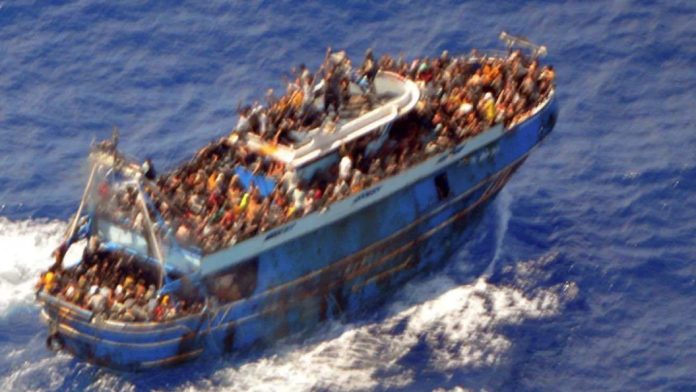European Union Ombudsman Emily O’Reilly has called for new EU search and rescue rules after conducting an inquiry into the sinking of the Adriana, the dilapidated fishing vessel that sank off Greece with the loss of hundreds of migrants lives last year while en route from Libya to Italy.
O’Reilly pronounced the current regulations inadequate, noting that they prevent Frontex, the EU’s border and coast guard agency, from delivering on its mandate to protect migrant rights insofar as the agency is unable to act independently of national authorities when boats like the Adriana are in distress.
Some 750 people were understood to have been crowded aboard the Adriana when it sank off Greece last June. Only 104 were rescued — mostly migrants from Syria, Pakistan and Egypt. Just 82 bodies were recovered. Outraged human rights groups accused authorities in Greece of having failed to properly investigate the cause and circumstances. Italian authorities also came in for criticism.
“Why did reports of overcrowding, an apparent lack of life vests, children on board and possible fatalities fail to trigger timely rescue efforts that could have saved hundreds of lives?” O’Reilly demanded.
To help protect maritime and land borders, Frontex is charged with providing surveillance and related support to the EU’s 27 national authorities — plus some in EU partner countries. Yet, when it comes to emergency situations, Frontex has no authority to coordinate rescue missions, being required to adhere to the orders of the national authorities involved.
O’Reilly said the inquiry revealed that the four separate offers made by Fronterx to assist Greek authorities with aerial surveillance of the stricken Adriana met with no response. Current rules prevented Frontex from going to the ship without Greek permission. “We must ask ourselves why a boat so obviously in need of help never received that help despite an EU agency, two member states’ authorities, civil society and private ships knowing of its existence,” she said.
Despite the thousands who die or go missing in desperate attempts to cross the Mediterranean each year in boats of questionable seaworthiness, neither the EU nor its member states have actively patrolling search and rescue missions. A search and rescue effort set up by the Italian authorities in 2013 was abandoned in the face of allegations that it merely served to encourage more people to risk the voyage to Italy. Others actively sought to prevent NGO-sponsored vessels from doing the job.
“If Frontex has a duty to help save lives at sea, but the tools for it are lacking, then this is clearly a matter for EU legislators,” O’Reilly declared, warning that the current situation “risks making the EU complicit in actions that violate fundamental rights and cost lives.” Her acknowledgement that Frontex had followed all laws and procedures in alerting the Greek and Italian authorities at the time, was welcomed by the agency…
EU members and lawmakers are currently negotiating an overhaul of its asylum and migration rules, aiming to do so before the Europe-wide elections scheduled for early June. The envisaged reforms offer no proposals for proactive search and rescue missions.

